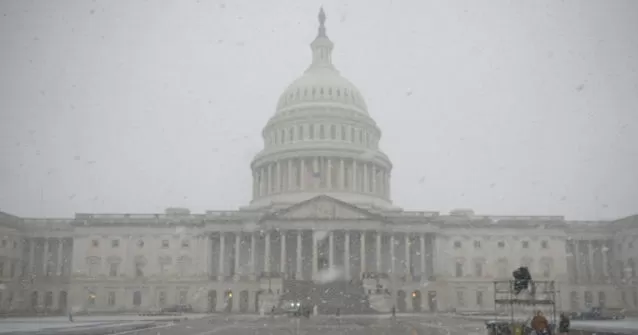Uncertainty has always been a major concern for businesses, and the current political climate in the United States is no exception. With the recent tax cuts introduced by the Trump administration, there has been a lot of speculation about their fate and the impact they will have on the economy. One particular area of concern is the fate of bonus depreciation, and how it may already be affecting investment.
In a recent article published on Breitbart, Mark Carney highlights the potential negative effects of this uncertainty, which he refers to as the “Washington’s Uncertainty Tax”. Carney argues that the lack of clarity surrounding the future of the tax cuts is already slowing down growth and could have even more damaging consequences in the long run.
The Trump tax cuts, which were implemented in December 2017, were aimed at boosting economic growth and stimulating investment. One of the key components of these cuts was bonus depreciation, which allows businesses to immediately deduct a larger portion of their capital expenditures from their taxable income. This was seen as a major incentive for businesses to invest in new equipment and infrastructure, which in turn would create jobs and drive economic growth.
However, with the mid-term elections looming and the possibility of a change in the political landscape, there is a growing sense of uncertainty about the future of these tax cuts. This uncertainty is having a significant impact on businesses, as they are hesitant to make big investments without knowing what the tax landscape will look like in the coming years.
Carney points out that this uncertainty is not just limited to the bonus depreciation aspect of the tax cuts, but also extends to other areas such as corporate tax rates and international trade policies. This lack of clarity is creating a “wait-and-see” approach among businesses, which is causing a slowdown in investment and economic growth.
The consequences of this uncertainty are already being felt in the economy. The latest GDP figures show a growth rate of 2% in the second quarter of 2018, down from 4.2% in the first quarter. While there are many factors that contribute to economic growth, Carney argues that the uncertainty surrounding the tax cuts is playing a significant role in this slowdown.
Furthermore, Carney warns that the uncertainty tax could have even more damaging effects in the long run. If businesses continue to hold back on investment, it could lead to a decrease in productivity and innovation, which are essential for sustained economic growth. It could also have a ripple effect on job creation and wage growth, which would ultimately impact consumer spending and overall economic health.
It is clear that the uncertainty surrounding the fate of the Trump tax cuts, especially bonus depreciation, is already having a negative impact on investment and economic growth. As we approach the mid-term elections, it is crucial for policymakers to provide clarity and stability in regards to these tax cuts. This will not only help boost economic growth in the short term but also lay the foundation for sustained growth in the long term.
In conclusion, while the Trump tax cuts were meant to stimulate investment and economic growth, the uncertainty surrounding their fate is already having the opposite effect. Businesses are hesitant to make big investments, which is causing a slowdown in economic growth. It is imperative for policymakers to address this uncertainty and provide businesses with the clarity they need to make informed decisions. Only then can we ensure a strong and thriving economy for years to come.

